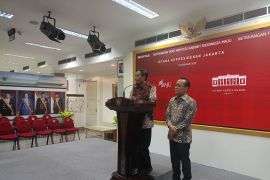"I called on the two ministers to immediately regulate the administration of technical issues so that the Act can be implemented," he said at the inauguration of the Nahdlatul Ulama (NU), one of the largest Muslim organizations, at its new office building here on Monday (Feb 27).
According to Mahfud, the matter of citizenship and residence, should be handled by the Interior Minister, while the civil rights should be organized by the minister of religious affairs.
Article 43 paragraph (1) of Law No. 1 of 1974 on Marriage, states," Children born out of wedlock have only a civil relationship with their mothers and family", and the law has no binding legal force and was meant to eliminate all civil relationships with their fathers, who can be proven by science and technology and or other evidence under the law who have ties of blood.
According to the new Court decision, the paragraph should read, "Children who are born out of wedlock have a civil relationship with their mothers and their family, as well as men as fathers who can be proven by science and technology and/or other evidence under the law to have a blood relationship, including a civil relationship with his father`s family."
Relating to the new decision, many sides disagree, including the Muslimat NU (Nahdlatul Ulama`s women`s wing).
The Muslimat NU called the decision very risky; responding to this, Mahfud MD said he believed that the opinion was not wrong.
"I think Muslimat NU has a good point, they are not rejecting the decision; rather some technical issues must be addressed," said Mahfud.
Mahfud added, if some people fear this ruling could be a justification for adultery, then they should not worry.
"In essence, this decision is aimed to prevent someone from committing adultery, because anyone who commits adultery cannot escape the responsibility because it will be pursued under the constitution and the new citizenship law," he added.
Mahfud explained further, that anyone who violates the new Marriage Law can be sued under religious-related prosecution.
(T.I027/INE /A014)
Editor: Priyambodo RH
Copyright © ANTARA 2012












